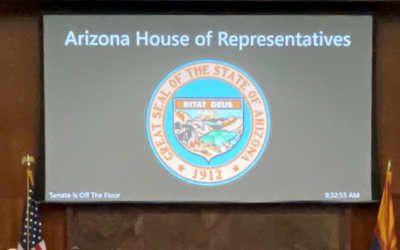By Terri Jo Neff |
In a 6-3 vote, the U.S. Supreme Court ruled that Arizona election laws were not “enacted with a racially discriminatory purpose.”
The Court also found that “Arizona law generally makes it very easy to vote. Voters may cast their ballots on election day in person at a traditional precinct or a ‘voting center’ in their county of residence.”
Justice Samuel Alito authored the 44-page opinion for the majority on two cases which were ruled on together. Justice Neil Gorsuch, with Justice Clarence Thomas joining, concurred with Alito’s opinion but tagged on a one-paragraph notation about an issue involving the Voting Rights Act of 1965 which was assumed in the majority opinion but had not been decided in the Arizona cases.
Justice Elena Kagan wrote a dissent on behalf of herself and Justices Stephen Breyer and Sonia Sotomayor.
The case involved Arizona’s election laws related to ballot harvesting and to out-of-precinct voting. Specifically, the justices ruled on a law passed by the Legislature in 2016 which makes it illegal for organizations to “harvest” or collect voters’ mail-in ballots and then deliver them to election officials.
The other law requires election officials to invalidate, or not count, ballots that are cast by voters outside their registered precinct.
Gov. Doug Ducey called the ruling “big victory for Arizona voters, the rule of law and the integrity of our elections.”
As reported by AFN earlier this month:
Two Yuma County women charged by the Arizona Attorney General’s Office with ballot fraud are scheduled to be back in court next month, two local election integrity watchdogs say the problem in their county runs much deeper, and it has garnered the attention of the FBI.
Gary Garcia Snyder and David Lara revealed in a radio interview with Sergio Arellano that they utilized hidden cameras to record ballot harvesting incidents at two San Luis polling stations on Aug. 4, 2020, which was primary election day. The city of 33,000 is in the far southwest corner of Arizona on the Mexico border.
The Court on Thursday found:
Arizona law generally makes it very easy to vote. Voters may cast their ballots on election day in person at a traditional precinct or a “voting center” in their county of residence. Ariz. Rev. Stat. §16–411(B)(4). Arizonans also may cast an “early ballot” by mail up to 27 days before an election, §§16–541, 16–542(C), and they also may vote in person at an early voting location in each county, §§16–542(A), (E). These cases involve challenges under §2 of the Voting Rights Act of 1965 (VRA) to aspects of the State’s regulations governing precinct-based election day voting and early mail-in voting. First, Arizonans who vote in person on election day in a county that uses the precinct system must vote in the precinct to which they are assigned based on their address. If a voter votes in the wrong precinct, the vote is not counted.
Second, for Arizonans who vote early by mail, Arizona House Bill 2023 (HB 2023) makes it a crime for any person other than a postal worker, an elections official, or a voter’s caregiver, family member, or household member to knowingly collect an early ballot— either before or after it has been completed. §§16–1005(H)–(I).
The Democratic National Committee and certain affiliates filed suit, alleging that both the State’s refusal to count ballots cast in the wrong precinct and its ballot-collection restriction had an adverse and disparate effect on the State’s American Indian, Hispanic, and African-American citizens in violation of §2 of the VRA. Additionally, they alleged that the ballot-collection restriction was “enacted with discriminatory intent” and thus violated both §2 of the VRA and the Fifteenth Amendment. The District Court rejected all of the plaintiffs’ claims. The court found that the out-of-precinct policy had no “meaningfully disparate impact” on minority voters’ opportunities to elect representatives of their choice. Turning to the ballot-collection restriction, the court found that it was unlikely to cause “a meaningful inequality” in minority voters’ electoral opportunities and that it had not been enacted with discriminatory intent. A divided panel of the Ninth Circuit affirmed, but the en banc court reversed. It first concluded that both the out-of-precinct policy and the ballot-collection restriction imposed a disparate burden on minority voters because they were more likely to be adversely affected by those rules. The en banc court also held that the District Court had committed clear error in finding that the ballot-collection law was not enacted with discriminatory intent.
AZ Attorney General Mark Brnovich discusses the Supreme Court’s decision to uphold its voting laws as Constitutiona https://t.co/cwhjGnkLfq
— James T Harris (@JamesTHarris) July 1, 2021
Congratulations @GeneralBrnovich! Voter confidence scores a big win! https://t.co/hgIMs6H9aK
— Nancy Barto (@NancyBarto) July 1, 2021








